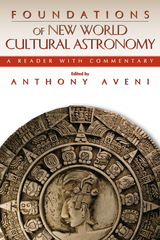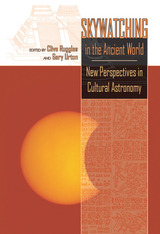
Poetry of the sky and stars.
Marcus Manilius, who lived in the reigns of Augustus and Tiberius, is the author of the earliest treatise on astrology we possess. His Astronomica, a Latin didactic poem in five books, begins with an account of celestial phenomena, and then proceeds to treat of the signs of the zodiac and the twelve temples; there follow instructions for calculating the horoscoping degree, and details of chronocrators, decans, injurious degrees, zodiacal geography, paranatellonta, and other technical matters. Besides exhibiting great virtuosity in rendering mathematical tables and diagrams in verse form, the poet writes with some passion about his Stoic beliefs and shows much wit and humor in his character sketches of persons born under particular stars. Perhaps taking a lead from Virgil in his Georgics, Manilius abandons the proportions of his last book to narrate the story of Perseus and Andromeda at considerable length.
In spite of its undoubted elegance, the Astronomica is a difficult work, and this edition provides in addition to the first English prose translation a full guide to the poem, with copious explanatory notes and illustrative figures.

Cultural astronomy, first called archaeoastronomy, has evolved at ferocious speed since its genesis in the 1960s, with seminal essays and powerful rebuttals published in far-flung, specialized journals. Until now, only the most closely involved scholars could follow the intellectual fireworks. In Foundations of New World Cultural Astronomy, Anthony Aveni, one of cultural astronomy's founders and top scholars, offers a selection of the essays that built the field, from foundational works to contemporary scholarship.
Including four decades of research throughout the Americas by linguists, archaeologists, historians, ethnologists, astronomers, and engineers, this reader highlights the evolution of the field through thematic organization and point-counterpoint articles. Aveni - an award-winning author and former National Professor of the Year - serves up incisive commentary, background for the uninitiated, and suggested reading, questions, and essay topics. Students, readers, and scholars will relish this collection and its tour of a new field in which discoveries about ancient ways of looking at the skies cast light on our contemporary views.

This collection's wide range of outstanding scholarship reveals that cultural astronomy has come into its own. The diverse topics addressed by the contributors include the correlation between Colonial Northern Zapotec and Gregorian calendars, the period of use of the Dresden Codex Venus table and the significance of the Lunar Almanacs that precede it, a new interpretation of an Inka tapestry mantle as a commemorative calendar, temple orientations in Hawai'i and church orientations in Medieval England, and the connection in cultural imagery between astronomers (science) and wizards (magic).
Contributors include: Harvey M. Bricker, Victoria R. Bricker, Edward E. Calnek, Clemency Coggins, John Justeson, Edwin C. Krupp, Stephen C. McCluskey, Susan Milbrath, Clive Ruggles, David Tavárez, Barbara Tedlock, Dennis Tedlock, Gary Urton, and R. Tom Zuidema. Mesoamerican Worlds Series
READERS
Browse our collection.
PUBLISHERS
See BiblioVault's publisher services.
STUDENT SERVICES
Files for college accessibility offices.
UChicago Accessibility Resources
home | accessibility | search | about | contact us
BiblioVault ® 2001 - 2024
The University of Chicago Press









